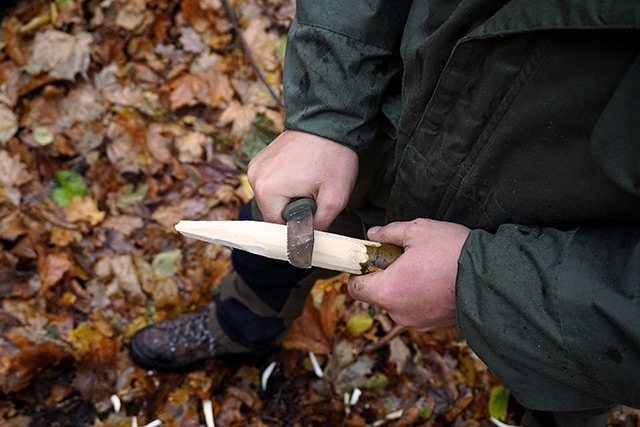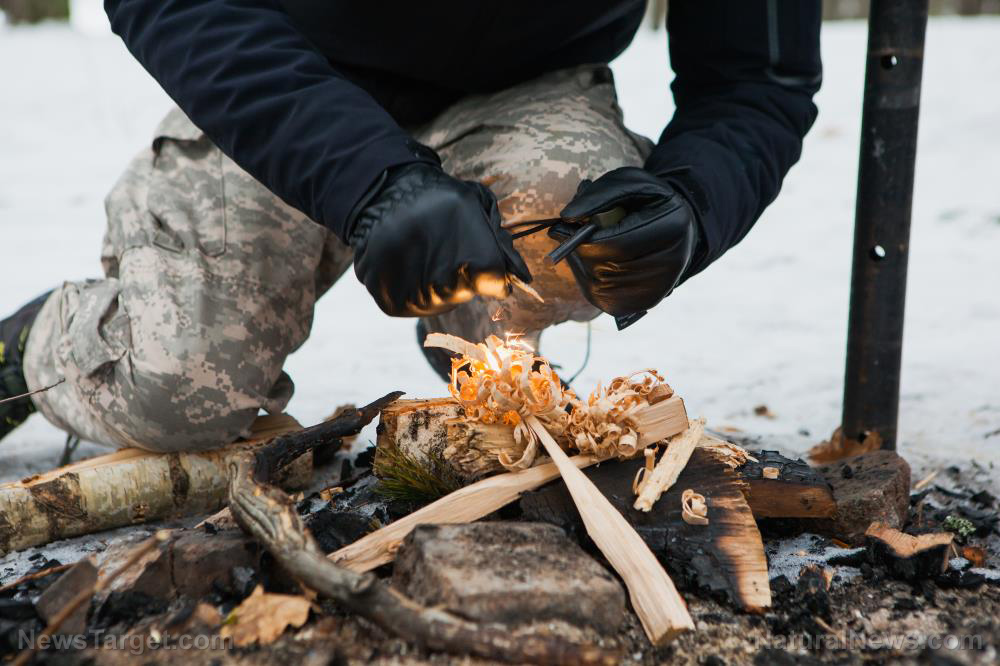How to maintain oral health even after SHTF
11/29/2018 / By Zoey Sky

A toothache may seem like a minor inconvenience, but when SHTF, this can affect your ability to gather survival supplies for your family. To avoid this kind of scenario, you can learn about natural remedies for toothaches and other dental emergencies that you may face in a post-SHTF world. (h/t to TheSurvivalistBlog.net)
10 natural remedies for toothaches
Check the list of 10 natural toothache remedies below or grow some of these herbs in your garden so you can have access to medicinal plants even during a disaster.
- Activated charcoal – Activated charcoal can draw out toxins from an abscessed or aching tooth and gum or mouth sores. Add a bit of water to activated charcoal to make a damp poultice, then pack it around the problem area. Let it sit for about five minutes before removing.
- Basil – Chew on fresh basil leaves to relieve a toothache. Basil can also treat bad breath.
- Chamomile – Chamomile can treat abscessed teeth, bleeding or swollen gums, mouth sores, and toothaches. Swish some chamomile antiseptic rinse around your mouth, let it linger over the infected area, then spit out the liquid. (Related: Don’t forget your toothbrush when SHTF: Off-grid oral hygiene.)
- Cloves – Cloves have natural antibacterial and anesthetic properties. Chew on a clove and spit it out afterward, or dab a drop or two of clove oil to soothe discomfort caused by a toothache.
- Echinacea tincture – Dab several drops of echinacea tincture near the source of a toothache or gum pain. The tincture can prevent mouth infections, and it can help numb the aching pain.
- Garlic – Garlic is an effective remedy for bleeding gums, intense cavity pain, and toothaches. Chew a salt-coated clove of garlic or place the garlic clove directly on top of the cavity or gum injury to reduce pain. Garlic has antibacterial properties that can relieve oral pain. It can also hasten the healing process for gum and mouth sores. An alternative is to crush a garlic clove, add a bit of water to make a paste, then pack the mixture into the cavity or around the source of a toothache or mouth pain.
- Parsley – Chew on parsley leaves to relieve toothache pain and to freshen your breath.
- Salt – Add a tablespoon of salt to 16 ounces of lukewarm water. Mix well, then gargle the mixture. Rinse and repeat as necessary several times a day to ease toothaches.
- Tea tree oil – Considered nature’s “antibiotic,” tea tree oil can cure a toothache. Add one or two drops of the essential oil to a glass of slightly warm water and gargle near the location of your toothache. Tea tree oil has anti-inflammatory properties, but it is not recommended for use on children younger than two years old.
- Turmeric – Turmeric can help ease toothache pain. Combine a teaspoon of turmeric with a bit of water to make a thick paste. Dab the turmeric paste onto the area of a toothache, or mouth sore. Turmeric’s antiseptic and anti-inflammatory properties can help relieve oral pain.
Recipes for a chamomile mouth rinse and echinacea tincture
Chamomile mouth rinse
Ingredients:
- 2 chamomile tea bags (you can also use chamomile “pill balls” or 2 tablespoons of dried chamomile flowers)
- 1 cup of water
- ¼ teaspoon (tsp.) of vanilla extract (optional)
- ¼ tsp. lemon juice (optional)
Directions:
- Boil the water and put the chamomile tea bags/pill balls/dried flowers into a bowl.
- Pour the boiling water over the chamomile to release its antibacterial and antiseptic properties.
- Let the chamomile steep in the boiling water for five to 10 minutes. Stir in the lemon juice or the vanilla extract.
- If you used dried flowers, strain the mixture. If you used tea bags, remove them from the mixture.
- Gargle with the chamomile mouth rinse for about one minute, then spit it out.
The benefits of an echinacea tincture
Also called the purple coneflower, the leaves, flowers, and roots of the echinacea plant are often used to make natural medicinal remedies. You can grow echinacea indoors or in a patio container. It will grow in most types of soil, and it requires little to no maintenance.
Echinacea possesses anti-inflammatory, antioxidant, and antiviral properties. The plant, which is also considered an immune-strengthening agent, is often used as an ingredient in natural remedies for gum disease, oral pain, and various infections.
Echinacea tincture
- ½ cup of dried echinacea leaf (You can also use a mixture of dried leaves and roots.)
- 80 proof alcohol, like rum or vodka (You can also use apple cider vinegar.)
- A one-pint canning jar with ring and lid or a glass jar with a firm-fitting lid
- 2 teaspoons of water
- A wooden or metal mixing spoon
- Cheesecloth or coffee filter
Directions:
- Boil the water.
- Fill the glass jar about half full with the dried echinacea leaves or a mixture of leaves and roots. Don’t overfill the jar with the dried ingredients.
- Pour the water over the dried echinacea. Let the mixture steep to draw out the plant’s medicinal properties.
- Fill the rest of the glass jar with your choice of alcohol or apple cider vinegar. Leave some head space of about ¼ of an inch.
- Use the spoon to stir the ingredients thoroughly. Place the lid on the jar.
- Store the echinacea tincture in a cool and dry area for three to six weeks. Shake the mixture daily during this period
- Strain the mixture using the cheesecloth or coffee filter, then store it in smaller bottles until ready to use or keep it in the glass jar.
Storing the echinacea tincture in smaller jars with a dropper-style lid will minimize exposure to light and air when opened. If made and stored properly, the tincture has a shelf life of about two years. However, the tincture’s shelf life may be reduced if the jar is opened repeatedly.
To view more articles with oral hygiene tips post-SHTF, visit Preparedness.news.
Sources include:
Tagged Under: Collapse, dental health, dental hygiene, disaster, emergency medicine, emergency preparedness, natural health, natural remedies, off grid, oral health, oral hygiene, preparedness, preparedness and survival, prepper, prepping, prepping tips, remedies, self sufficiency, self-reliance, self-sustainability, SHTF, survival, survival skills, Survival Tips, survivalist



















